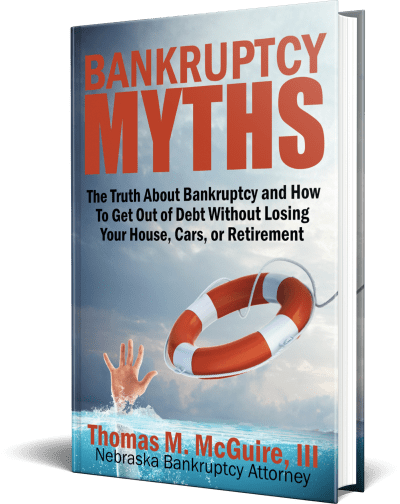Bankruptcy Exemptions
When a person files bankruptcy, they must list on their bankruptcy schedules all of the property that they own. State exemption laws are then used to determine whether the property is considered “exempt.” If property is exempt, then it is protected from the debtor’s creditors and the debtor is allowed to keep that property. If property is not able to be exempted, then the debtor can either file Chapter 13 to keep that property, or file Chapter 7 bankruptcy and allow a Chapter 7 Trustee to sell the non-exempt property and pay the money to creditors. That is why Chapter 7 bankruptcy is sometimes referred to as a “liquidation bankruptcy”, since non-exempt assets are liquidated to pay the debtor’s debts.
The state exemption laws that are used are usually the same as the state in which the bankruptcy case is filed. However, the exception to this rule is if an individual has not lived in their current state of residence for the past 2 years. If a person has lived in multiple states within the last 2 years, then the exemptions will be used from the state that they lived prior to 2 years before filing bankruptcy.
Learn The Truth About Bankruptcy And How To Get Out of Debt Without Losing Your House, Cars, or Retirement

Bankruptcy Attorney Thomas M. McGuire reveals five bankruptcy myths that keep people drowning in debt and afraid to claim the fresh start they deserve.
Learn The Truth About Bankruptcy And How To Get Out of Debt Without Losing Your House, Cars, or Retirement

Bankruptcy Attorney Thomas M. McGuire reveals five bankruptcy myths that keep people drowning in debt and afraid to claim the fresh start they deserve.
Nebraska provides a number of bankruptcy exemptions that allow you to keep much of your property, including:
- Up to $60,000 in your home’s equity, provided that it is not more than two lots in a city or 160 acres outside a city or village
- Proceeds from the sale of your house, up to $60,000 for six months following the sale
- Household furnishings, computers, appliances, musical instruments, or books ($3,000 per individual debtor, $6,000 for a married couple filing jointly)
- Motor vehicle, up to $5,000 per debtor in one motor vehicle per debtor.
- Immediate personal possessions of the debtor and his or her family (Unlimited) (ex. Wedding Rings)
- Wild card exemption up to $5,000 of other personal property, except wages (Typically used to protect Cash, Checking and Savings Account, Tax Refunds or equity in property above the other exemption amounts listed)
- Implements, Tools, or professional books or supplies, other than a motor vehicle, held for use in the principal trade or business ($5,000.00 per Debtor)
- Lump Sum payments or structured settlements for personal injury or death
- ERISA-qualified retirement accounts, IRAs, non-ERISA accounts to the extent reasonably necessary for the support of the debtor and any dependent of the debtor
- Social Security benefits, in most cases
- Professionally prescribed health aids (Unlimited)
- Earned income tax credit
- Wages up to 75 percent of disposable earnings or 85 percent if you are the head of the family (there are exceptions for certain debts, such as child support and taxes
- Up to $25,000 in a health savings account for future medical expenses
- Life insurance benefits or annuity proceeds, up to $100,000
A Nebraska bankruptcy attorney can review your situation and the current exemptions to ensure that you are maximizing all that is allowed.
Get A Free Bankruptcy Evaluation Today
Call (402) 965-0775 or (308) 221-8222 or click here to submit a consultation request form now.
Get Help Now

Free Consultation


